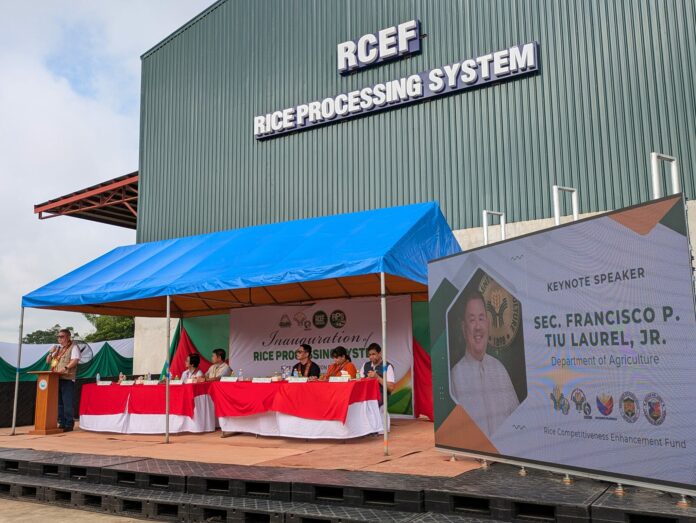Filipino farmers stand to gain significantly from the Rice Competitiveness Enhancement Fund (RCEF), which has been extended under the amended Agricultural Tariffication Act (RA 12078) until 2031. The program’s budget has been tripled from P10 billion to P30 billion annually, aiming to drive agricultural productivity and sustainability through a series of expanded initiatives, modern technologies, and improved farmer support systems.
With the additional funding, RCEF will enhance key programs such as soil health improvement, pest and disease management, solar-powered irrigation systems, and small water impounding projects. It also focuses on strengthening seed distribution networks, as demonstrated by pilot programs in Bicol and Eastern Visayas that have improved the timeliness and efficiency of seed deliveries.
The Philippine Rice Research Institute (PhilRice) has played a pivotal role in training municipal agriculturists and rice coordinators on RCEF guidelines, streamlining processes, and aligning them with planting schedules. Local government units (LGUs) are also collaborating to overcome logistical challenges, ensuring that certified seeds reach farmers more efficiently.
In CALABARZON, efforts are underway to transform seed grower groups into cooperatives, which will help lower transportation costs and improve supply chain efficiency. The Quezon Palay Seed Growers Association, Inc. (QPSGAI) and Samahan ng mga Magbibinhi sa Laguna, Inc. (SAMALAGUN) are preparing to join the Agriculture Cooperative of Progressive Laguna (ACOPRO), gaining access to additional government resources and programs.
RCEF’s commitment to modernizing farming practices is also reflected in its introduction of advanced machinery, such as the walk-behind transplanter. Farmers in Casiguran, Aurora, who are recovering from the devastation of Super Typhoon Pepito, have praised the machine for its cost-effectiveness and potential to increase productivity. Jaime E. Bautista, a local farmer and association leader, highlighted that the transplanter has reduced labor costs by 70 percent, improving planting efficiency.
The program also incorporates the Minus-One Element Technique (MOET), a technology that has helped farmers in Negros Oriental and Capiz optimize fertilizer use, reducing costs by up to 50 percent.
RCEF is being implemented by six key institutions: the Philippine Rice Research Institute (PhilRice), Philippine Center for Postharvest Development and Mechanization (PHilMech), Agricultural Training Institute (ATI), Technical Education and Skills Development Authority (TESDA), LandBank of the Philippines, and Development Bank of the Philippines. These institutions will support farmers with quality seeds, modern machinery, extension services, and low-interest credit, making a significant impact on the country’s agricultural landscape.







